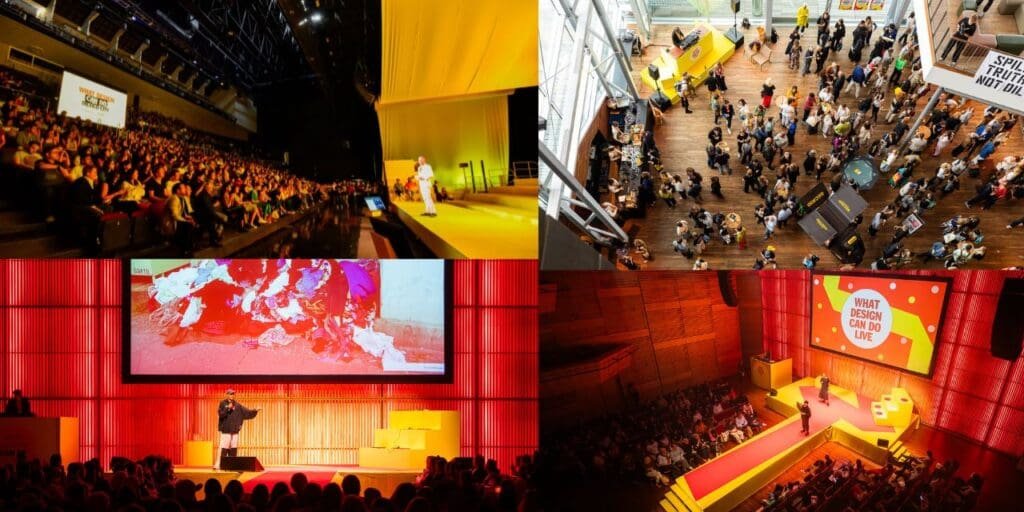WDCD is bringing a festival to India to address two pressing issues of our day: social transformation and climate action, with the goal of creating a resilient future driven by design.
New Delhi — November 2024: WDCD Live Delhi 2025, the inaugural event of What Design Can Do (WDCD), will take place in South Asia on March 8, 2025. In order to tackle the two most pressing issues of our day—climate action and social change—this ground-breaking festival will together designers, innovators, and changemakers. WDCD Live Delhi 2025 will investigate creative and regenerative solutions for a more equitable and resilient future in collaboration with Unbox Cultural Futures, Quicksand, and The Design Village.
The festival is returning to the energetic metropolis of New Delhi in 2025 after previous iterations in Mexico metropolis, São Paulo, and Amsterdam. The event takes place at a crucial moment as India deals with a growing number of climate-related issues. Among these are the fact that India is the biggest polluter of plastic, that rising sea levels are threatening coastal communities, that unpredictable monsoon patterns are upsetting agriculture, that intensifying heat waves are putting millions of people in danger, and many other issues.
Held at the India Habitat Centre in New Delhi, WDCD Live Delhi 2025 will inspire innovative thinkers to address these pressing problems with novel and unanticipated approaches that strike a balance between adaptation and mitigation.
Join us on 8 March 2025 for WDCD Live Delhi 2025!
For more information and to pre-register for early access, visit https://shorturl.at/ucAEL
“What Design Can Do’s arrival in Delhi excites us much. Our region’s climate emergencies necessitate both a collaborative global response and a distinctly local one. The social, economic, political, and cultural quirks of South Asia must be taken into account in any attempt to combat climate change. Over the past ten years, WDCD has established a potent worldwide stage on which designers and the larger creative community can showcase the ability of design to address social justice and climate justice concerns. This is a fantastic chance to elevate the voices and ideas of innovative changemakers from South Asia and India. Ayush Chauhan, co-founder of Quicksand, stated, “Quicksand and Unbox are honored to co-produce this festival with WDCD as design practices that have worked on issues of social impact over the last two decades in the Global South.”
Sourabh Gupta, founder of The Design Village, stated that the first edition of WDCD in Delhi aims to create a community of stakeholders who are passionate about taking charge of these important and crucial themes for change, resilience, and social justice. “The planetary climate crisis calls for spaces of joint action and urgent collaborative efforts,” he said.
The one-day festival, which is being supported by the Global Methane Hub and the Rockefeller Foundation, two prominent organizations dedicated to climate action, will feature some of the most prominent voices in the creative industries in a variety of presentations, seminars, exhibitions, and cultural performances. In order to learn more about how creativity can spur positive change, attendees will have the chance to network with business owners, environmentalists, researchers, designers, and decision-makers from across the world.
The festival this year will explore some of the most pressing social and environmental challenges of our day, along with the themes that unite them:
1. Circular Planet: Design for a Regenerative Future
Is it possible to imagine a society in which our design, production, and consumption are influenced by the cycles of nature? We encourage designers to reconsider materials, energy, and infrastructure in a way that can result in solutions that not only satisfy human needs but also restore the health of ecosystems by taking inspiration from Indigenous traditional practices and knowledge systems that have long been based on circularity.
2. The Power of Community: Design through Radical Collaboration
In order to provide significant answers where they are most needed, this subject urges radical cooperation between all sectors, including investors, creatives, local communities, policymakers, and industry. Together, we will investigate how design might foster human connections, elevate marginalized perspectives, and provide chances for education and healing.
3. Rethinking Technology
Because they are naturally interested, creative practitioners are not hesitant to try out new tools and techniques, and many are increasingly turning to them in their quest for answers as a result of the rapid emergence of emerging technologies like artificial intelligence and synthetic biology.


